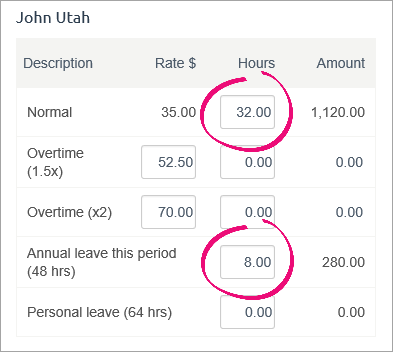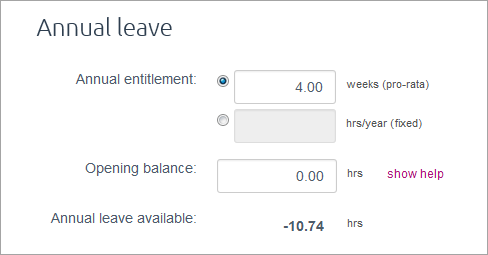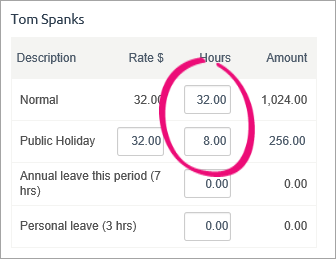Entering leave on a pay run (Australia)If an employee is entitled to paid leave, additional lines will be available on the payslip for entering the number of hours of leave taken. The employee’s available leave balances are also shown. To pay leave, just enter the number of hours of personal leave and/or annual leave the employee has taken during the pay period.  Image Removed Image Removed
Adjusting normal hours for leave takenIf you’ve entered a standard number of hours per week for the employee, you might need to adjust this amount to exclude the hours that were taken as leave. For example, if an employee normally works 40 hours per week, but has taken 8 hours of annual leave, you would need to change the number of hours in the Normal line to 32, so that their total hours remains the same.  Image Removed Image Removed
Negative leave balancesNote that if employee is taking more paid leave than they are entitled to, their leave balance will become negative. However, they will still be paid for all of the leave entered on the pay run.  Image Removed Image Removed
Leave pay rateLeave is paid at the employee’s normal hourly pay rate. So, if an employee normally receives $25 per hour, they will be paid $25 for each hour of leave taken. Public holidaysIf an employee is entitled to paid public holidays, these days can be processed on their pay like any other paid workday. This means if an employee takes 5 days off work (4 days as annual leave and 1 day for a public holiday), simply process a regular pay with 4 days annual leave. Learn more about public holidays on the Fairwork website If you want public holidays to be shown separately on an employee's pay, set up a new earning based on the employee's regular hourly rate. Here's an example.  Image Removed Image Removed
You can then enter the number of public holiday hours on the employee's pay. Remember to reduce their normal hours to exclude the hours that were taken as a public holiday. Here's an example 40 hour pay which includes 4 regular days (32 hours) and 1 public holiday (8 hours).  Image Removed Image Removed
|